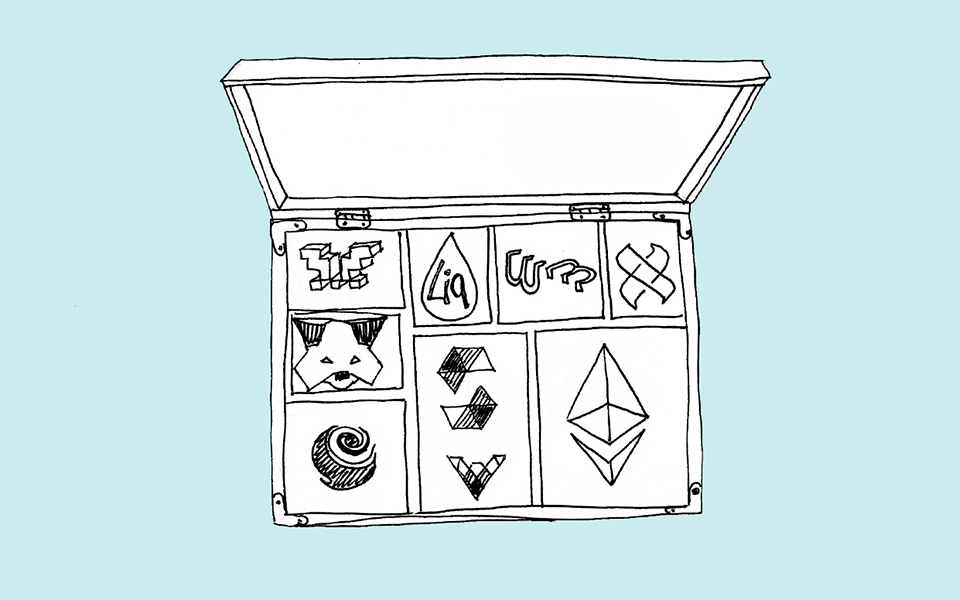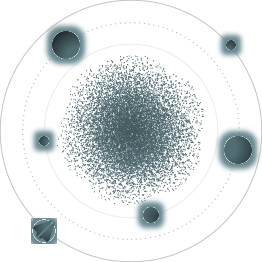 BACK TO ALL
BACK TO ALL

More and more businesses from varied fields are finding ways to introduce blockchain, which is undoubtedly a sign of increasing trust in the industry. Whether each case will bring clear benefits is another issue worthy of a separate article. In this piece, however, we would like to focus on the necessary tools and platforms that prove useful to entrepreneurs and developers when implementing blockchain technology in their business. The most obvious benefits of these tools are that they facilitate the development process for programmers, accelerating the introduction of blockchain technology within a company, and saving time/ costs along the way.
To begin with, we will look at the main components needed when developing any blockchain, and then move on to examining some separate development platforms that are commonly used.
Blockchain Development Tools You Need to Know
Every development process has several aspects that need to be addressed. Here are some of the best tools that can be used in these domains.
Language
- Solidity. When it comes to Ethereum development, you can’t do without Solidity, an object-oriented JavaScript-like programming language used to create smart contracts.
- Vyper is a contract-oriented programming language similar to Python, which targets the Ethereum Virtual Machine. It doesn’t involve a lot of constructs, such as class inheritance, function overloading, operator overloading, recursion, modifiers, inline assembly, or binary fixed point. This makes it easy to comprehend than other programming languages.
- Liquidity is a high-level typed smart-contract language for Tezos, which complies with the Michelson language restrictions.
Framework
- Truffle isn’t only a framework, but a whole development environment and asset pipeline. Its aim is to simplify the work of programmers.
- Embark Framework allows the management of deployed contracts, accessing them with the help of JS promises.
- Populus. The best thing about this framework is that it facilitates writing tests. It also deals with contract compilation and deployment processes.
- Etherlime is a great choice if you’re looking for an alternative to web3.js-based frameworks, as it gives you more control over the whole deployment and compilation process.
Compiler
NeoComplier Eco allows the compiling of smart contracts, written in the Go, Python, Java, and C# languages.
- Solc. You need this tool to convert your code written with Solidity to one that can be comprehended by the EVM.
Library
- web3.js is one of the most common libraries for connecting to an Ethereum blockchain.
- JSON RPC API is a remote data exchange interface, in other words, it is the data exchange protocol.
- pyethereum is one of the libraries used for the Python language. Pyethereum formats in IDS and compiles to bytecode. Nethereum is an open source .NET integration library for blockchain.
- Ethers.js is a concise library for communication between an Ethereum Blockchain and its ecosystem.
Integrated Developer Environment (IDE)
- Remix IDE is the best place to start your exposure to the Solidity language. It is a compiler for smart contracts that also supports deploying, testing and debugging.
- EthFiddle is a useful tool if you want to write Solidity code, or compile and debug your smart contract.
Browser Extensions Interface (Wallet)
Ethereum Wallets
- MetaMask is a cryptocurrency wallet that has been introduced in Google Chrome, Firefox and Opera. It allows you to run Ethereum dapps in a browser without having to manage a whole Ethereum node.
- Mist is one of the two branded wallets for Ethereum and is used for smart contract deployment.
Web Wallets
- MyEtherWallet is one of the most popular services used to store digital money. Its convenience and security keep it ahead of competitors.
- MyCrypto is a fork version of My EtherWallet, but only for the desktop.
Mobile Wallets
- Trust is a convenient wallet that allows you to store Ether on smartphones that run on iOS or Android.
- Coinbase Wallet is a crypto wallet controlled by its users. Furthermore, it is also a browser for decentralized apps or dapps.
Security
- Mythril is a security analysis tool that has been implemented for Ethereum smart contracts. It helps detect semantic bugs in the code and bad practices.
- SmartCheck detects vulnerabilities in the smart contract code and highlights them in red. In addition, it explains what kind of problem the developer is dealing with.
- Oyente is a smart contract auto-auditing tool that shows up bugs in code.
- Securify is a security scanner that allows developers to upload their code and see if there are any problems associated with it.
Testing
- Ropsten Testnet is a copy of the Ethereum blockchain that developers can use to test their dApps without the risk of losing money paying for a full product launch.
Related useful technologies
- Geth is an entry point for the Ethereum blockchain. In other words, it is a program that is, in fact, the Ethereum node. It enables users to connect to the existing blockchain, or create their own.
- EtherScripter is an ideal place for aspiring Ether developers to start coding. It offers a stripped down interface where newcomers can construct their code using its ready-made pieces, which are in the form of a puzzle.
- BaaS or Blockchain as a Service is a term that describes a service pattern where customers get a ready-made cloud-based blockchain solution which they don’t need to maintain and scale. BaaS providers include Microsoft Azure and Deloitte.
Blockchain Development Platforms for Your Business
The world of technology is growing at a frenetic pace. Taking into account the amount of great blockchain development platforms on the market, it is increasingly complicated to uncover the cream of the crop. That’s why we decided to list 5 great blockchain development platforms that are already established, and 5 newcomers that have big potential.
Platforms that deliver
- Ethereum is a decentralized platform that runs smart contracts. It is one of the most mature blockchain platforms on the market, which is why it is widely used across industries. It has a veritable army of supporters and contributors.
- Hyperledger Fabric is a B2B platform hosted by the Linux Foundation. It offers enterprise-grade distributed ledger frameworks and databases.
- R3 Corda is a project of the research company R3. It is essentially an operating system for financial and commercial services.
- Ripple is an enterprise blockchain solution, which enables cross-border payments, liquidity costs minimization, and payments across various networks.
- Quorum is an enterprise-focused version of Ethereum that features high performance for private transactions.
Promising platforms
There is a good deal of young blockchain platforms out there. Some of them are a part of a bigger ecosystem, while others are entirely separate projects. They all offer pretty much the same thing: an open source blockchain that features secure, scalable, and affordable solutions for your business.
In a nutshell
It may seem that the blockchain market is flooded with products and tools that possess only subtle differences. You would be right for thinking so, but this doesn’t point to a problem. On the contrary, it is a sign that the market is alive and competitive, which is needed to prevent stagnation. The main task of a business owner in these conditions is to realize the challenges they may face, be ready to tackle them and do the necessary research to find out which tools are best for their business.
We help our clients to deliver high-quality distributed apps and web-apps with blockchain. If you have any questions about how blockchain might benefit your project, feel free to reach out, we offer a free consultation on the topic.



